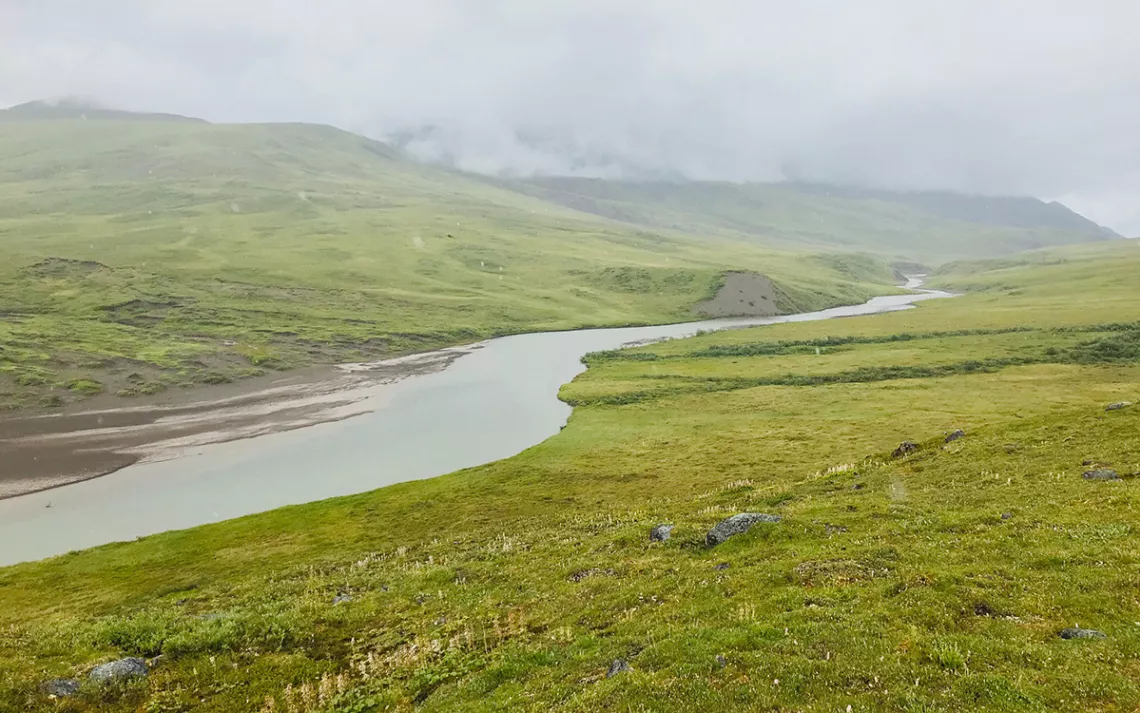The Trump Administration’s Last-Ditch Effort to Plunder Arctic Oil
The BLM will lease land in the Arctic Refuge the day before Biden’s inauguration

Photo by JeffDSameuls71/iStock
With its reign of power rapidly closing, the Trump administration is clambering to deliver on a final promise: to definitively open up the Arctic National Wildlife Refuge, one of the most remote and ecologically pristine areas in North America, to oil and gas drilling.
On Monday, the Bureau of Land Management announced “a call for nominations” for land tracts in the refuge’s coastal plain. This is a solicitation for oil and gas companies to indicate what land they would want to develop in the Arctic wilderness and puts into motion a process that would allow the sale of land leases on January 19, the day before President-Elect Joe Biden’s inauguration.
Notably, Biden opposes drilling in the Arctic Refuge and has promised to ban new oil and gas projects on public lands.
Athan Manuel, director of the Sierra Club’s Lands Protection Program, said that the Trump administration's action was expected.
“We knew they were going to try to jam it in before the president left office. We were surprised that they waited so long. They are cutting it really close,” said Manuel. “It just shows you how craven they are to do anti-environmental things that would harm the climate and Indigenous peoples, but also how incompetent they are at doing that.”
Environmental groups and Indigenous activists have successfully fought against fossil fuel development in the Arctic Refuge for decades. In 2017, however, with a Republican Congress and presidency, the GOP Tax Bill passed with a clause to at last open up the area to oil and gas extraction.
Encompassing more than 19 million acres, the Arctic Refuge is the largest national wildlife refuge in the United States. It has no roads or facilities. Tucked in the northeast corner of Alaska along the Beaufort Sea, its delicate arctic landscape provides breeding grounds for caribou, denning sites for polar bears, and habitat for migratory birds, among other ecological rarities.
Yet fossil fuel companies have long eyed the refuge’s 1.5-million-acre coastal plain because it’s suspected to hold the largest untouched terrestrial pocket of oil in North America, though such oil reserves have not been confirmed.
The Indigenous people of the Gwich’in Nation have fought fiercely against fossil fuel development in the Arctic Refuge, as they rely on the land and its caribou physically, spiritually, and culturally for their way of life, and have for thousands of years. While they hunt caribou, they consider the breeding grounds of the Porcupine caribou herd on the refuge’s coastal plain sacrosanct.
“Even during times of food shortage and starvation, our people never set foot in the calving grounds,” Bernadette Demientieff, executive director of the Gwich’in Steering Committee, told Sierra last August. “And right now they’re trying to turn it into an oilfield.”
It’s unclear, however, whether oil and gas companies are even interested in the leases. While the stakes of the competition will keep executive lips sealed until bidding occurs, there are multiple economic and public pressures that could keep these companies at bay.
One barrier is that investors have increasingly turned against these projects, as several Wall Street banks—such as Wells Fargo, JPMorgan, and Goldman Sachs—committed last March to no longer supporting drilling in the Arctic. Currently, Bank of America is the only major US bank that has not refused to finance future arctic oil ventures.
The coastal plain is also extremely remote, and its oil is challenging to access. With the price of oil so low at the moment, it may not be worth the effort. The politics of the situation could deter fossil fuel companies as well, according to Manuel.
“This could be a stranded asset, because they are going to know that Biden is coming in the next day with a completely different agenda. It might scare off all the companies, because they don’t want to spend money on something they are not going to be able to develop,” he said.
The BLM’s “call for nominations” and any subsequent lease sales will no doubt receive significant pushback and litigation to stop or stall this process. Even if the BLM ends up having a lease sale, however, Biden has multiple pathways and laws at his disposal to halt drilling in the refuge—be it a moratorium on new oil and gas projects on public lands, or an environmental review of drilling’s impact on polar bears, which are protected under the Endangered Species Act.
“President-Elect Biden is not going to lack options for ways to stop this from happening,” Manuel said. But, he added, this is going to have to be a “Day 1 thing” for the Biden administration.
 The Magazine of The Sierra Club
The Magazine of The Sierra Club



